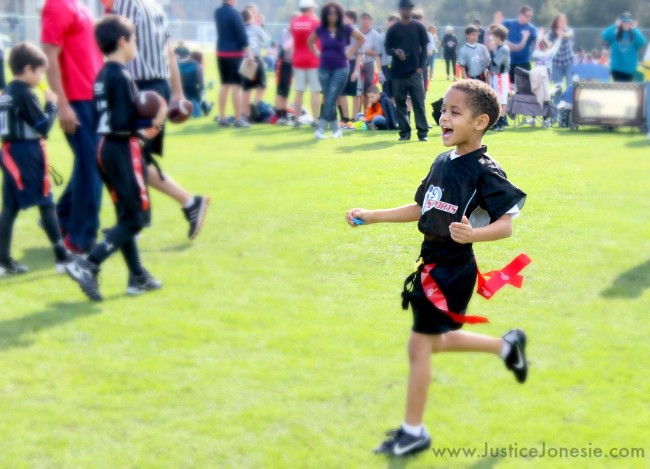
Helping kids to be good sports can be easy with these six tips. Win or lose, playing sports should be fun for kids. I have seen many kids break down and cry, yell, or storm off a field after losing a game or making a mistake on the field. It’s one thing to be disappointed in how you performed, but when a child gets angry or starts to blame the team for not winning the game, coaches and parents should take this opportunity to help their children remember how to be a good sport.
Helping Kids to Be Good Sports
Here are a six ways parents or coaches can help develop good sportsmanship in children.
- Good sportsmanship begins with good coaches and parents.If your child plays sports, you probably have seen one or two team parents whose behavior makes everyone want to cringe. I remember one mom who screamed so loud during EACH play we all wanted to cover our ears. One parent finally spoke to the coach about it and the coach had a chat with the mom. She stopped right away and we were all happy team parents.
- Sports is about fun and doing your best. If your child struggles with losing, before games or practice, remind him or her to do their best but also to have fun playing the game. It’s not just about winning the game. If your child really struggles with the idea of having fun, consider discussing examples of good sportsmanship when a professional athlete may have lost a big game. At a young age, you can help encourage children to focus on developing their skills rather than playing just to win.
- Kick off the game with the right attitude. Before the game starts, wish the opposing team “good luck.” On the field, off the field, and in the parking lot, wish everyone from players to parents and coaches “good luck.”
- Don’t mock or make fun of the losing team or teammates that don’t perform well during practice or game day. It may be easy for children to laugh or smirk when someone’s not having a good game. Make it clear that such behavior is not good sportsmanship up front. Do not let laughing or gloating at another person’s losses or shortfalls go unnoticed and consider a time-out from the game if you see it happening.
- Parents and coaches should lead by example. Adults should be nice to the other team, avoid arguing with the referee, and root for the whole team, not just one player.
- End it with a handshake. Win or lose, ask players to end the game by shaking hands or a nice high-five with the other team.
If your child struggles with being a good sport, don’t give up. Having your children participate in sports encourages a healthy lifestyle, allows your children to learn new skills, and make new friends. Playing sports also teaches children the importance of working as a team, skills needed for different areas of life.
How do you teach your kids to be a good sport?

Leave a Reply